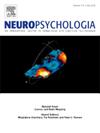慢波睡眠与情景记忆网络的重组有关。
IF 2
3区 心理学
Q3 BEHAVIORAL SCIENCES
引用次数: 0
摘要
记忆巩固模型提出,新获得的记忆痕迹在睡眠期间进行重组。为了验证这一观点,我们在晚上的单词图像学习期间记录了高密度脑电图(EEG),随后是即时(睡眠前)和延迟(睡眠后)回忆。整个晚上都在使用多导睡眠描记仪,记录不同睡眠阶段的时间。利用源重构时频分析,我们首先复制了在线索开始后700 - 1500毫秒之间,在颞叶内侧、外侧以及后顶叶皮层出现的阿尔法功率下降对成功回忆的影响。直接对比成功的睡眠后和睡眠前回忆,发现睡眠后阿尔法能量下降从顶叶向前颞叶(ATL)转移。关键的是,在中间的夜晚,慢波睡眠(SWS)的时间不仅预测了记忆保留的程度,而且还与向ATL回忆效应的转变相关。最后,成功回忆期间的全脑功能连接概况与记忆网络在夜间的显著重组有关,重组的程度再次通过在SWS中花费的时间来预测。总之,这些发现表明,SWS与情景记忆网络的巩固和功能重组之间存在联系。本文章由计算机程序翻译,如有差异,请以英文原文为准。
Slow wave sleep is associated with a reorganisation of episodic memory networks
Models of memory consolidation propose that newly acquired memory traces undergo reorganisation during sleep. To test this idea, we recorded high-density electroencephalography (EEG) during an evening session of word-image learning followed by immediate (pre-sleep) and delayed (post-sleep) recall. Polysomnography was employed throughout the intervening night, capturing time spent in different sleep stages. Using source-reconstructed time-frequency analysis, we first replicated the effect of alpha power decreases for successful relative to unsuccessful recall, emerging between 700 and 1500 ms after cue onset and spanning medial and lateral temporal lobe regions as well as posterior parietal cortex. Directly contrasting successful post-sleep vs. pre-sleep recall revealed a shift of alpha power decrease from parietal towards anterior temporal lobe (ATL) after sleep. Critically, time spent in slow wave sleep (SWS) during the intervening night not only predicted the extent of memory retention, but also correlated with the shift to ATL recall effects. Finally, brain-wide functional connectivity profiles during successful recall was associated with a marked overnight reorganisation of memory networks, with the extent of reorganisation again predicted by time spent in SWS. Together, these findings suggest a link between SWS and the consolidation and functional reorganisation of episodic memory networks.
求助全文
通过发布文献求助,成功后即可免费获取论文全文。
去求助
来源期刊

Neuropsychologia
医学-行为科学
CiteScore
5.10
自引率
3.80%
发文量
228
审稿时长
4 months
期刊介绍:
Neuropsychologia is an international interdisciplinary journal devoted to experimental and theoretical contributions that advance understanding of human cognition and behavior from a neuroscience perspective. The journal will consider for publication studies that link brain function with cognitive processes, including attention and awareness, action and motor control, executive functions and cognitive control, memory, language, and emotion and social cognition.
 求助内容:
求助内容: 应助结果提醒方式:
应助结果提醒方式:


